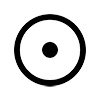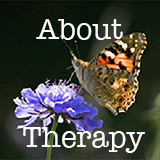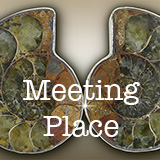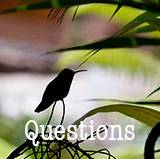What is the Psyche?
A Wonderful Secret Writing
The Latin origin of 'psyche' is the "animating spirit" and the Greek for "the soul, mind, spirit, breath, invisible animating principle". This is the unseen generator of our thoughts and impulses but not from the brain. The psyche utilises the brain. It is also known as the "Mediator of the personality and the soul" and "the all-wise Regulator". Jung defined the Psyche as “by psyche I understand the totality of all psychic processes, conscious as well as unconscious”. However one wishes to contain it, it is invisible, immeasurable and, ultimately, unquantifiable.
On my Home Page I quote Ernst Cassirer, the phenomenological philosopher, who writes about this paradox as "What we call nature... is a poem hidden behind a wonderful secret writing; if we could decipher the puzzle, we should recognize in it the odyssey of the human spirit, which in astonishing delusion flees from itself while seeking itself." This is how the unconscious behaves. If we chase it, it vaporises into thin air. If we leave room for it to arrive, it usually does. And it's writing is so wonderfully secret.
Jung believed that the psyche is a self-regulating system and this bears itself out in the observable work I have done. What this means is that the psyche presents spheres of unconscious material at a careful rate that the conscious mind is ready to process at an appropriate time. Growth and development is the motivation.
"The cave you fear to enter holds the treasure that you seek."
~ Joseph Campbell
The Psyche's Realm
The Personal Unconscious
In the personal unconscious, the contents are held as potential for development. It is like a time-released pod full of seeds for our evolution, be it in reparation or future flowering. These may be raw potentials or they may be repressed events held until a better time arrives for the individual to experience them. One can think of the personal unconscious as a huge cache of all that you need to know about yourself on a carefully calibrated timeline.
The repressed material in the personal unconscious are things that we resist acknowledging. These can be past traumas, guilt, shame (shame takes up a large amount of personal unconscious repressed floor space) and other events, thoughts and feelings that are frightening or uncomfortable to be honest about. They are stuffed away like in a dark attic cupboard. These memories are cuffed and stifled, but the defense tactic is not entirely successful. It works for a temporary reprieve, but it's moans and groans will continue to exert influence in unseen and mysterious ways in daily life.
The core work of depth therapy is to create an environment that is open to allowing these repressions to have a voice, to be heard, to be felt and acknowledged. Yes, they can be difficult and painful to see through, but you become freer from these concealed hindrances and have more effect in choices and living a less cluttered life.
You also have freer access to your own wisdom and creativity in a more comfortable, natural way.
The Self and the Ego
The Ego
The Ego is confined to the conscious aspect of the self and is, therefore, not necessarily connected with The Collective Conscious nor the Collective Unconscious. It is self-focussed and self-serving. When it is confined to self-focus, it is has little recognition of Collective influences as it is inward looking.
The term 'ego' is often misunderstood, especially in terms of what constitutes a strong ego. The Ego is what you perceive to be you. It can be hyper-, hypo- or in a balanced state. Hyper-ego is an inflated state of self-worth or importance that is not based with reality. It can be confused with a 'strong ego' but the reverse is true. Hyper-ego arises from an inner weakness that is compensated by an exaggerated display. Hypo-ego is also weak but in the opposite way. It is when we think less of or neglect who we really are. A Balanced ego is having a clear sense of self that includes strengths as well as weaknesses. It is connected to reality and provides the ability to take care of and feel good about the self without the need to elevate or denigrade others.
 This is a visual depiction of Jung's definition of The Self. The whole circle is the Self while the dot is the Ego. The whole circle includes the Ego.
This is a visual depiction of Jung's definition of The Self. The whole circle is the Self while the dot is the Ego. The whole circle includes the Ego.
The Self is the entire psyche inclusive of what is conscious and what is unconscious. If you have heard of the term 'Individuation', that refers to the on-going process of Self-development that includes the Ego and all that which is still in a potential state.
The Collective Unconscious
The Soul's Gallery
As we have a personal unconscious that relates to our individual lives, Jung purports that we also belong to a broader realm, in our case, the species of human being where we share meaning through art, myth, archetype, metaphor and so on. There are essential modes and structures that are common to humanity. We relate to these at various levels, but the personality is the most recognisable display of our archetypal selections. I view this as "The Soul's Gallery". This is the unique blend of The Self, The Personal Unconscious and The Collective Unconscious.
As humans we share a clutch of physiological traits, such as standing on two legs, hands with fingers and so on. We possess a variety of physical traits that defines us human. These physical attributes have relevance to our roles in life as part of the human race. These are the tangible characteristics of our corporeal beingness; they are shared with humankind as a whole and, yet, are highly personalised. The species-DNA is human; the independent adaptations are societal and individual.
A Subtle-DNA
It follows that our thoughts and feelings are similar. The species-specific 'DNA' of the psyche is human at core and it's interpretations are a combination of personal and societal. As a person can increasingly resonate with foreign societal paradigms, it displays an enhanced resonance with the collective unconscious. In short, healthy progress (and depth therapy) requires attention to the individual, the societal and the species essences. In other words, one of the dimensions of integrative therapy.
Individuation
Individuation is an internal motivation to become all that we can be. It seeks to fulfill all the potential we possess, both those things we are aware of and those we are not yet aware of or may have little inklings about. This form of self-development pursues familiarity with what makes us uniquely ourself. This is not in comparison with others, but as a deep knowing of who we independently are and all that we can be.
Consider the acorn. It has a 'code' within that impels it to develop in accordance with it's true nature. It does not question, nor does it look to the pine to define itself. It has not yet become an oak, but it allows what-it-is to become what-it-will-be.
The first step towards Individuation is Differentiation. Getting familiar with the Psyche's 'map' is Differentiation. This map is made up of these aspects:
- Personal Conscious (ego) - what we know about ourselves;
- Personal Unconsious - our forgotten or suppressed memories;
- Collective Conscious - things we know that extend beyond the limitations of our personal experience;
- Collective Unconscious - 'all that is' which we are not yet aware of, but might be influenced by without our direct knowledge.
Individuation is the process of integrating what is already conscious with the personal and the collective unconscious. This endeavour includes:
- Becoming more aware of buried memories. This is done through analysis, imagary, dream work, art and some forms of bodywork. The unraveling of meaning and interpretation of subtle impulses.
- Unlearning automatic suppression of new uncomfortable feelings and becoming familiar with what might trigger this;
- Becoming more familiar with the Archetypes and what they mean for you;
This brings to the fore the genuine self or, in other words, the Individual character and fosters a sense of surety, ease and clarity. From here Life can flow through you more harmoniously.
The Shadow
The Shadow side is also known as the Dark self. The shadow is unconscious and is composed of repressions and disowned memories; the things we wish to deny we are or might be. It is an invisible reflection of what we truthfully feel but are uncomfortable admitting. For example, if we refuse to accept an angry side to convince ourself that we are 'nice' through and through, our anger is in shadow form. If we are in touch with our angry side, then it is no longer repressed and we can understand it better. If we ignore it, it does not simply go away. In fact, it becomes sneaky by making it's presence felt by leaking out sideways. This can take many forms as it is hard-wired to action. In the case of unacknowledged anger, it can exhibit as passive-aggressive behaviour. We are in diminished control of how anger may be expressed. When we are aware of our angry tendencies, we than have a choice in how to manage those urges. We then own angry behaviour rather than it owning us.
Acknowledging our Shadow can be uncomfortable, especially at the beginning. With growing familiarity through shedding light on these personal mysteries, we can discern whether action is or is not appropriate.
At a recent gathering, a man (Mr A) talked about how a neighbour (Mr B) was threatening to cause Mr A enormous problems; possibly even the ownership of his home. Mr A was talking about how much he would like to do all kinds of horrible things to Mr B. The guests were all horrified that Mr A could say such things. Mr A looked in surprise, saying "This is the honesty of what I feel. Yes, I am angry, but I do not plan to do those things." By being in touch with his Shadow side, Mr A was able to not only be honest and express the awful feelings, he could take ownership of them and behave in a responsible way. There is that gap for reflection.
People can be frightened to look at their shadow. The irony is that not looking at it is the really scary thing.
"One does not become enlightened by imagining figures of light, but by making darkness conscious." ~Carl Jung
 Therapy with Me
Therapy with Me Meeting Place
Meeting Place Contact
Contact Frequently-Asked Questions
Frequently-Asked Questions Contact
Contact
